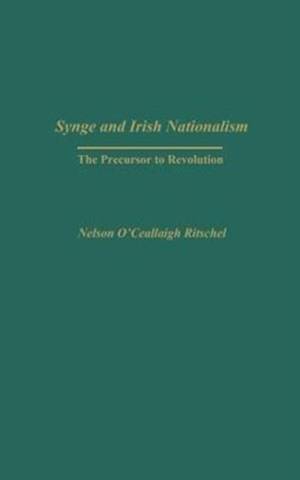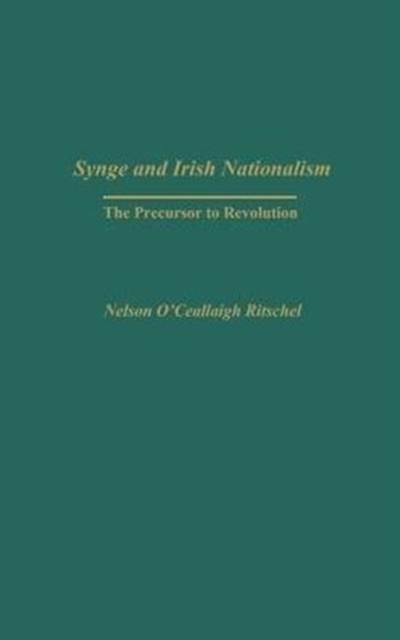
- Retrait gratuit dans votre magasin Club
- 7.000.000 titres dans notre catalogue
- Payer en toute sécurité
- Toujours un magasin près de chez vous
- Retrait gratuit dans votre magasin Club
- 7.000.0000 titres dans notre catalogue
- Payer en toute sécurité
- Toujours un magasin près de chez vous
Description
One of the most important playwrights of the Irish Renaissance, John Millington Synge is receiving renewed attention as his works are reread in light of the political and cultural contexts of his time. This book argues that his plays are far more deeply rooted, thematically and aesthetically, in the ancient native literature than was previously believed. It demonstrates that Synge borrowed themes and ideology from the ancient culture, serving as a nationalist agenda far more radical and modern than the agendas of the most common nationalists in his day. Synge rejects these nationalists, whom he believed were embracing foreign influences that were drowning Ireland in conservatively capitalistic initiatives and values.
The book's most important section examines ^IThe Playboy of the Western World.^R It discusses the play's characters as representative and recognizable types and reconsiders the play's thematic depiction of violence. Synge's representation of both commenced the process of separating and identifying the nationalist camps in Dublin from 1907 on. The volume argues that Synge's play drafted what became the Easter Rising. This argument is furthered through Synge's ^IDeirdre of the Sorrows^R and the influence that his works ultimately bore on the plays and ideologies of Thomas MacDonagh, Padaraic Pearse, and James Connolly. The book also explores the acting style originally used to perform Synge's plays, thus gathering further evidence for its argument.Spécifications
Parties prenantes
- Auteur(s) :
- Editeur:
Contenu
- Nombre de pages :
- 132
- Langue:
- Anglais
- Collection :
- Tome:
- n° 98
Caractéristiques
- EAN:
- 9780313324246
- Date de parution :
- 30-10-02
- Format:
- Livre relié
- Format numérique:
- Genaaid
- Dimensions :
- 174 mm x 230 mm
- Poids :
- 390 g

Les avis
Nous publions uniquement les avis qui respectent les conditions requises. Consultez nos conditions pour les avis.






